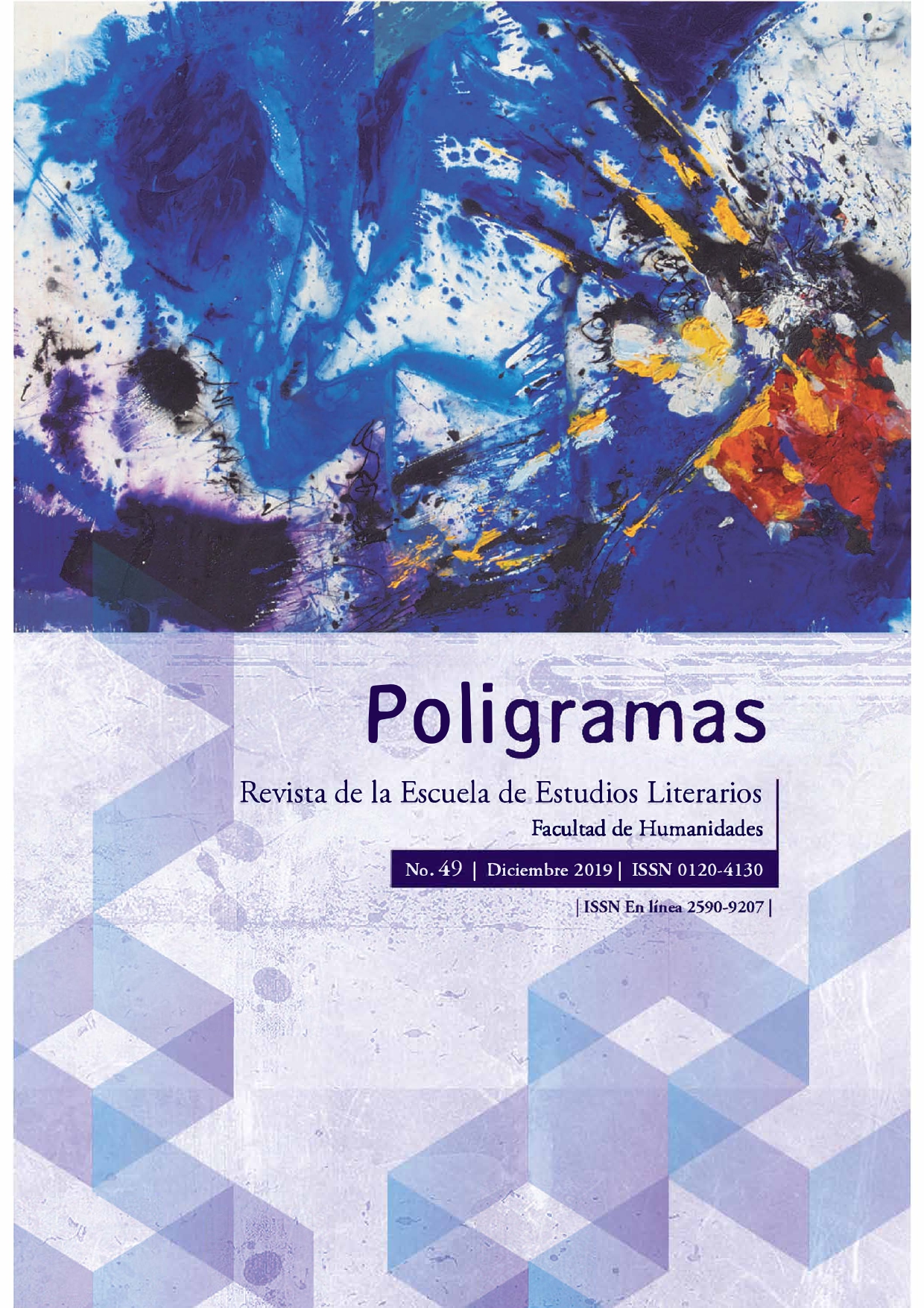Eclipsing: New «politics of friendship» in 2666, from Roberto Bolaño
Main Article Content
Using some of the notions from Jacques Derrida, and in disagreement with a certain fraction of the critics of Bolaño, this essay goes over the critical and emotional path taken by Manuel Espinoza, Piero Morini, Liz Norton and Jean-Claude Pelletier that was once seen as only «cartoons» of the European cultural evaluation but that, in reality, for the complete novel 2666 by Roberto Bolaño, it represents a much more complex profile of academics and subjects. In fact, the ambiguous and problematic notion of «friendship» is what, on one side, will open gaps between the public life of the Spanish, Italian, French and English characters (their institutional ambitions) and their private lives (their friendhips and love lives); and on the other side, will cause what we’ll call the «eclipsing» of some circumstances that, at first, seemed like determinant for the concatenation of the argument of «The critics part» but will later function only to deconstruct it as a simple parody. The relationship between Norton and Morini, and Pelletier’s and Espinoza’s search for Benno von Archimboldi in the Sonora desert will not only reconfigure the focus on the novel???s characters, but also of the possible real reader, who will see a transgression of any possibilities to make any sense of 2666 if he does not go back to a troubling image: there is a last text (the novels of Archimboldi) and a last reader capable of making sense of it (Pelletier); however, the entrance to both fields is shut down.
- Roberto Bolaño
- 2666
- Jacques Derrida
- deconstruction
- politics of friendship
Bolaño, Roberto. 2666. Barcelona: Anagrama, 2004. Impreso.
Bolaño, Roberto. El secreto del mal. Barcelona: Anagrama, 2007. Impreso.
Derrida, Jacques. «La estructura, el signo y el juego en el discurso de las ciencias humanas». La escritura y la diferencia. Trad. Patricio Peñalver. Barcelona: Anthropos, 1989. 383-401. Impreso.
Derrida, Jacques. Políticas de la amistad (seguido de El oído de Heidegger). Trad. Patricio Peñalver y Francisco Vidarte. Madrid: Trotta, 1998. Impreso.
Derrida, Jacques. «La différance». Márgenes de la filosofía. Trad. Carmen González Marín. Madrid: Cátedra, 1998. 37-62. Impreso.
Derrida, Jacques. La hospitalidad. Trad. Mirta Segoviano. Buenos Aires: Ediciones de La Flor, 2008. Impreso.
Espinosa, Patricia. «Secreto y simulacro en 2666 de Roberto Bolaño». Revista Estudios Filológicos 41, 2006: 71-79. Impreso.
Fallas Arias, Teresa. «De autorías y orfandades canónico-literarias en la narrativa de Roberto Bolaño». GénEros, Revista de Investigación y Divulgación sobre los Estudios de Género. 8 Sep. 2010-Feb. 2011: 135- 149. Impreso.
Foucault, Michel. El orden del discurso. Trad. Alberto González Troyano. Barcelona: Tusquets, 2000. Impreso.
López Badano, Cecilia. «2666: El narcotráfico como anamorfosis muralista». Roberto Bolaño: Ruptura y violencia en la literatura finisecular. Ed. Felipe A. Ríos Baeza. México: Eón, 2010: 369-384. Impreso.
Masoliver Ródenas, Juan Antonio. «Prólogo: Entre el abismo y la desdicha». Los sinsabores del verdadero policía. Por Roberto Bolaño. Barcelona: Anagrama, 2011. 7-13. Impreso.
Platón. «Lisis». Diálogos I. Trad. Emilio Lledó Íñigo et. al. Madrid: Gredos, 1985. 272-316. Impreso.
Ríos Baeza, Felipe A. Roberto Bolaño: Una narrativa en el margen. Desestabilizaciones en el canon y la cultura. Valencia: Tirant Lo Blanch, 2013. Impreso.
Segura Munguía, Santiago. Lexicón etimológico y semántico del latín y de las voces actuales que proceden de raíces latinas o griegas. Bilbao: Universidad de Deusto, 2014. Impreso.
Solotorevsky, Myrna. «2666 de Roberto Bolaño». Revista Aisthesis de la Pontificia Universidad Católica de Chile 39, 2006: 129-134. Impreso.
Downloads

This work is licensed under a Creative Commons Attribution-NonCommercial-NoDerivatives 4.0 International License.





